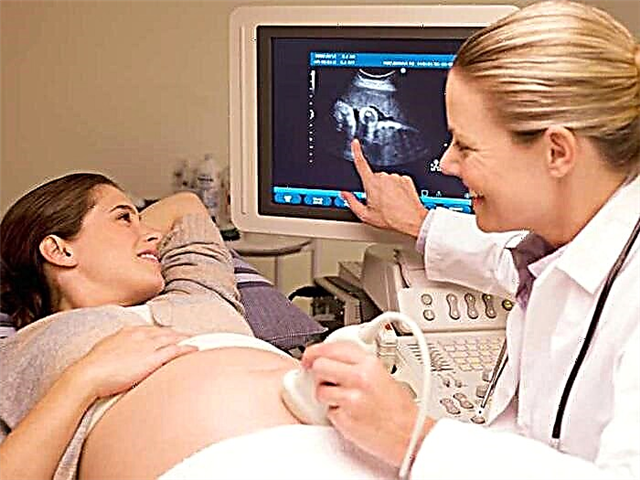
Modern pregnancy tests are fairly accurate and easy to use. But women still have a lot of questions, in particular, about the allowable time for using test systems. In this article, we will try to answer the question of whether testing can be carried out during menstruation.
What result to expect?
The question of the possibility of testing during menstruation is not as ridiculous as it might seem at first glance. A reasonable question arises, and why, in general, do a test if the onset of menstruation is a clear sign of the absence of pregnancy. It's true. But there is another truth in which testing during this period may be needed. For example, a woman may suspect that she has not started her period, but menstrual bleedingthat there was a frozen pregnancy, there was a rejection of the embryo at the earliest possible date.
In these cases, there is usually a delay in menstruation, sometimes quite long. Signs and sensations could be evidence in favor of the ensuing "interesting situation", and even tests could be positive or weakly positive. The sudden onset of bloody discharge in this case becomes unexpected, and the woman wants to get an answer, and whether there was a pregnancy, in general.
Of course, in such cases, it will be more informative and accurate to donate blood to determine the exact quantitative indicator of hCG in it. But the test, if you want, can be done.

A positive result is a result in which two stripes are equally brightly colored. It is unlikely that you will get such a result when your period begins. It is most likely that there was no conception at all - and then the test result will be negative (one bar). But a weak second strip (weakly positive test) is also likely if the pregnancy has begun, but it was interrupted at the earliest possible date, and the embryo was rejected.


Chorionic gonadotropin (hCG) is produced by chorionic villi after implantation, which usually occurs 6-9 days after fertilization. If the development of the baby was impossible for some reason (harmful external effects, infections of the mother, gross chromosomal abnormalities), then the embryo stops in development and gradually begins to be rejected. But the level of hCG by the time of the death of the embryo could already have been increased, and then traces of the hormone will remain in the urine and during menstrual bleeding.
Another situation that needs to be discussed separately is abnormally flowing pregnancy. Often, bleeding from the genital tract is accompanied by a threat of miscarriage, hypertonicity of the uterus, hormonal deficiency (lack of progesterone).
In this situation, the discharge is unlike menstruation, they are more scarce, there may be pulling pains in the lower abdomen. The test for such discharge is positive.

Does menstruation affect accuracy?
Menstrual or menstrual bleeding alone cannot affect the accuracy and result of the test. Systems for home determination of the fact of pregnancy are based on the detection of high concentrations of chorionic gonadotropin in the urine. Neither erythrocytes, which can get into the urine with a blood discharge from the genitals, nor the hormonal background that promotes the onset of menstruation, affects the test zone of the system with the reagent applied to it. And therefore You can trust a test taken during your period in the same way as testing at another time.
The accuracy, as in all other cases, can be affected by errors made during testing, a possible defect in the system itself, as well as the timing of diagnostics. In the case when you need to make sure that there is no pregnancy after the onset of menstruation, the time frame is sufficient for the test.

The level of hCG, if pregnancy has occurred, begins to rise from the moment of implantation, and every 48 hours it grows by about 2 times. Ultrasensitive systems with a sensitivity threshold of 10 to 15 units per milliliter (this indicator is indicated on the package - read carefully) allow you to establish the presence of hCG in relatively small quantities, that is, to get a positive result 2-3 days before the delay. All other tests (the sensitivity threshold of which is 20-30 units per milliliter) begin to determine hCG from the first day of the delay and later.
If menstruation has begun, but a woman wants to make sure that there is really no pregnancy, then you need to start from the opposite - in the absence of bleeding by this time, the tests are quite accurate and informative, and therefore, with discharge, their accuracy will be high.

How to diagnose?
If it becomes necessary to do a pregnancy test while your period is running, remember the simple rules that will help you make the diagnosis correctly.
- Use the morning portion of urine for testing - it is the most concentrated, dense, the amount of hCG, if any, is always higher in the morning portion.
- Read the instructions for the test before use. Different systems have their own nuances in application: some need to be immersed in urine, in others urine needs to be instilled, there are also digital and jet tests. Violation of instructions and errors in use is a common reason why a test may show inaccurate results.
- Collect urine in a clean, dry container, perform hygiene procedures on the external genitalia and insert a tampon into the vagina to prevent blood contamination of the urine sample.
- Do not keep the strip in liquid for longer than the specified time, do not wait for the result to appear longer than the time recommended by the manufacturer. What the test will show in the first 5-10 minutes - and there will be a real result, after this time, as the strip dries, a grayish ghost strip may appear, which does not mean anything, being only a trace of the reagent application.

If you receive questionable results, if there is reason to believe that the test was wrong, visit any clinic and have a blood test for hCG. This analysis is much more accurate than any test system. It will accurately help establish the fact of pregnancy or its absence both during menstruation and during lactation, breastfeeding, when the hormonal background differs from normal.
A blood test will help to reveal even a slight excess of the hCG level, which it may be with an early terminated pregnancy.
And monitoring the level of the hormone for 2-4 days (with repeated donation) allows you to establish the dynamics of an increase or decrease in hCG, which is also important for establishing the correct diagnosis and maintaining women's health.

On the likelihood of "color pregnancy"
Despite the fact that there are many messages and articles on the Internet about the likelihood of continuing menstruation during pregnancy, this is physiologically impossible. HCG levels support the corpus luteum, which produces progesterone, which prevents menstruation. If there is bleeding of any intensity, this indicates the pathology of pregnancy or its absence.
The most diverse causes of pathology at such an early stage are possible. If you suspect that you may be pregnant, but bleeding has begun, see your doctor.




